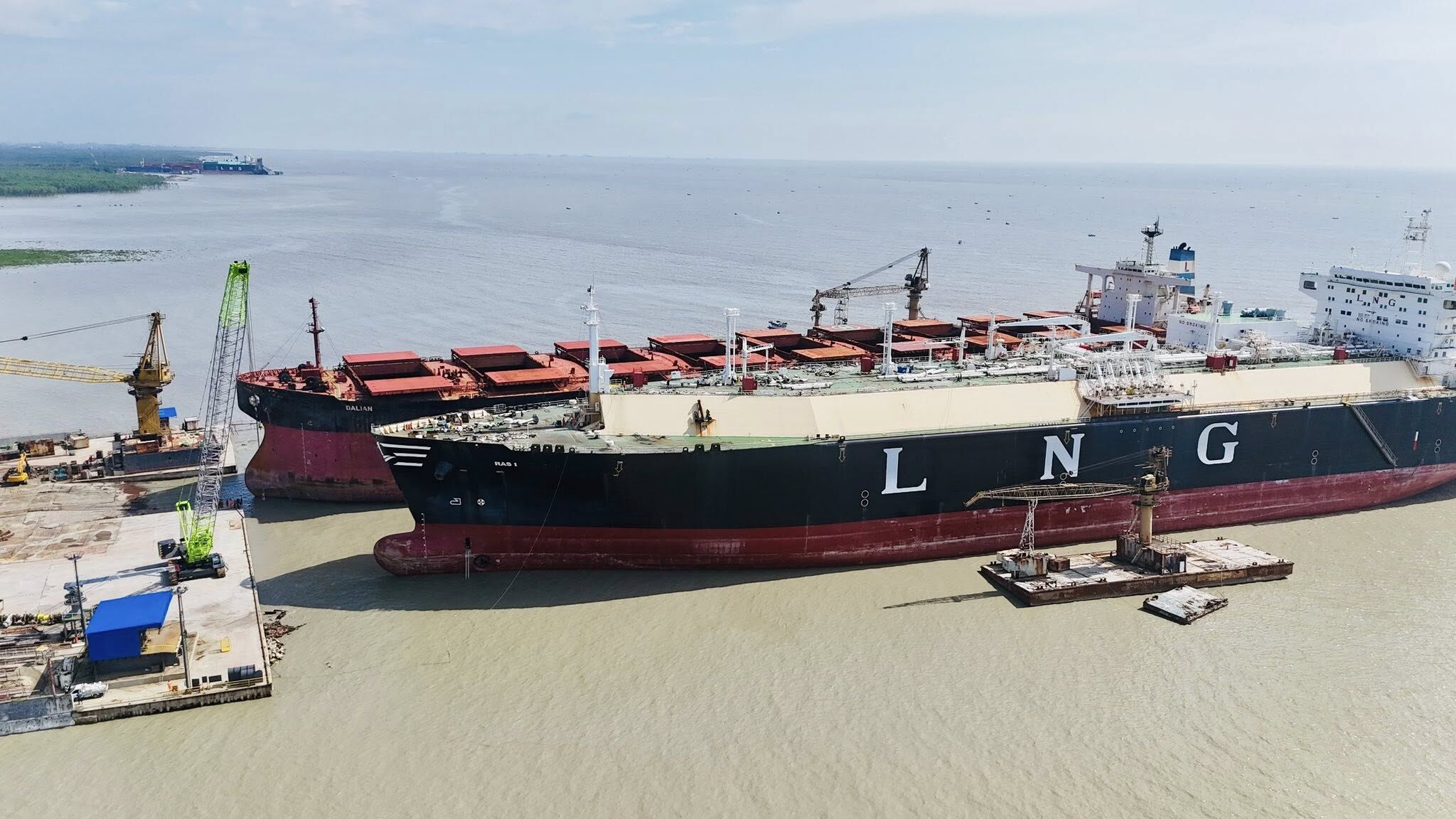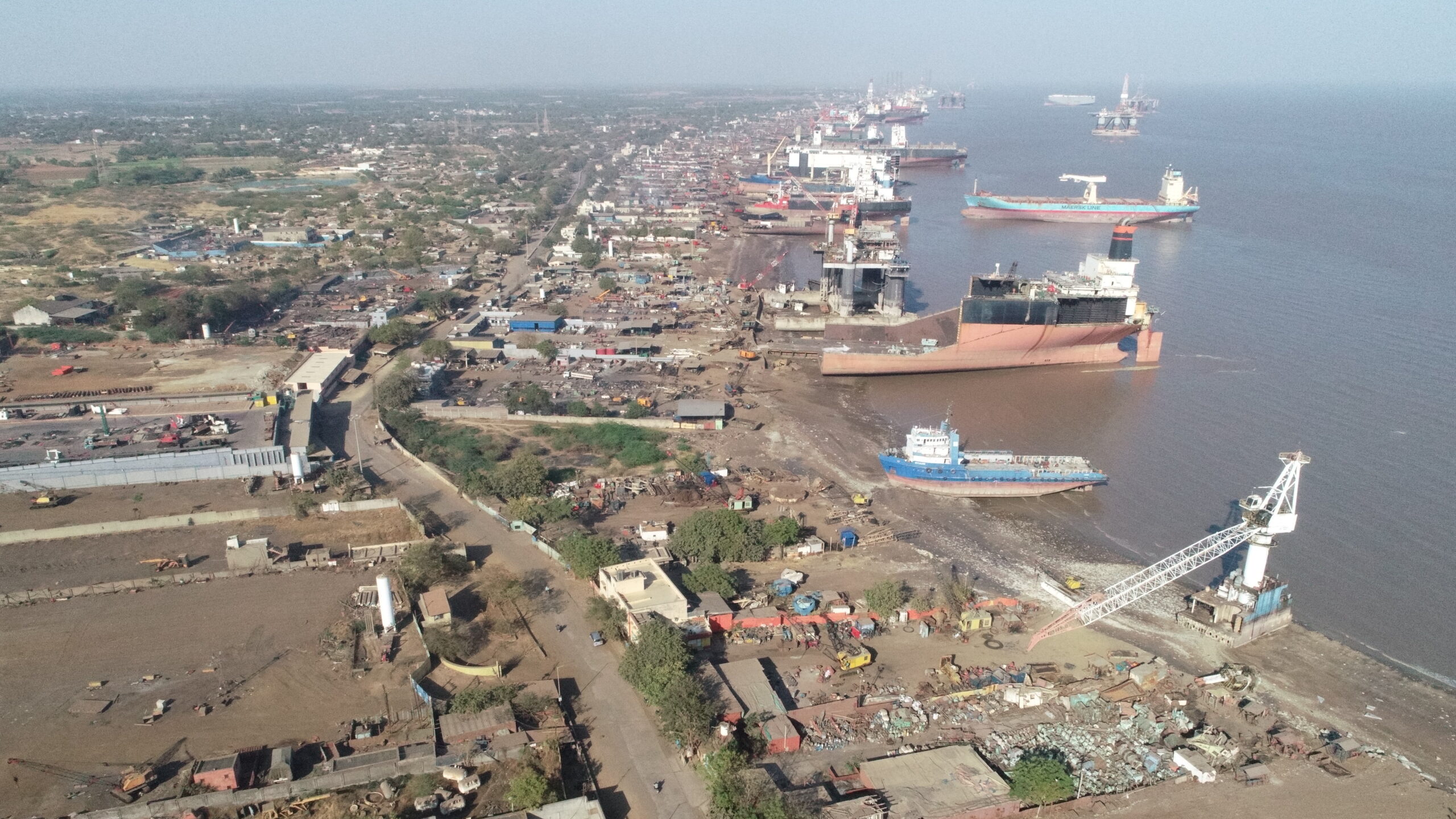Alang Yards Invest for HKC Compliance: Hoping to Regain Footing in Global Market
Alang, Gujarat – Several shipbreaking yards at the infamous Alang facility in India have announced significant investments towards achieving compliance with the Hong Kong Convention (HKC) for safe and environmentally sound ship recycling. This move comes amidst a slowdown in the industry and increasing competition from less regulated yards in neighboring countries.

The HKC, which came into effect in 2013, sets stringent guidelines for ship recycling practices to minimize environmental damage and ensure worker safety. Alang, once the world’s largest shipbreaking yard, has historically struggled with environmental and safety concerns. However, with stricter regulations and a decline in global ship recycling activity, these investments signal a potential shift for the Indian industry.
Motivations for Change
The decision by several Alang yards to invest in HKC compliance is driven by a confluence of factors. Firstly, stricter environmental regulations are pushing ship owners towards yards that meet international standards. Secondly, the industry is facing a slowdown due to a scarcity of available ships and rising freight rates. This has made it more difficult for Alang yards to compete with facilities in Bangladesh and Pakistan, which have laxer regulations and lower operational costs.
“While Alang faces the challenge of complying with stringent regulations,” says Haresh Parmar, owner of Somnath Ship Recycling Company, the world’s biggest shipbreaking yard at Alang, “our competitors in Bangladesh and Pakistan operate under less stringent oversight. This puts us at a disadvantage when bidding for ships, especially considering the already high prices of vessels due to the market slowdown.” [2]
Challenges and Opportunities
The path towards HKC compliance is not without its hurdles. Upgrading facilities and implementing new processes requires significant capital expenditure. Additionally, the yards need to address the issue of skilled labor. Dismantling ships under the HKC requires a trained workforce familiar with hazardous material identification and safe handling procedures.
“India’s ministry of shipping has invested in improving safety training for workers at Alang,” says a recent report by Recycling International. “This is a positive step, but more needs to be done to ensure a skilled workforce that can handle the complexities of HKC-compliant ship recycling.” [4]
However, achieving HKC compliance also presents significant opportunities for Alang. Yards that successfully implement these standards can position themselves as leaders in responsible ship recycling, attracting business from environmentally conscious ship owners. This could lead to a resurgence of the Indian shipbreaking industry and create a more sustainable future for Alang.
The Road Ahead
The Indian government is also playing a role in supporting the modernization of Alang. The Gujarat Maritime Board, the state regulator for maritime activities, is working with various stakeholders to improve infrastructure and implement best practices. Additionally, organizations like IRClass, a classification society, are offering their expertise to help yards achieve HKC compliance. [3]
The success of Alang’s efforts towards HKC compliance remains to be seen. The industry faces stiff competition and requires sustained investment in infrastructure, training, and technology. However, these recent developments indicate a growing commitment from both private and public stakeholders to transform Alang into a world-class ship recycling facility that prioritizes safety and environmental responsibility.
Additional Considerations
-
The article can be further enhanced by including quotes from representatives of the yards that have invested in HKC compliance. This will provide a more personal touch and showcase the human element behind this industry shift.
-
It’s also important to acknowledge the environmental and social concerns that persist at Alang, despite the positive developments. Briefly mentioning ongoing challenges and efforts towards improvement can provide a balanced perspective.
-
Finally, the article could explore the potential impact of Alang’s HKC compliance efforts on the global ship recycling landscape. Will it encourage other yards to follow suit? How might it affect the industry’s overall sustainability?
Author: shipping inbox
shipping and maritime related web portal








